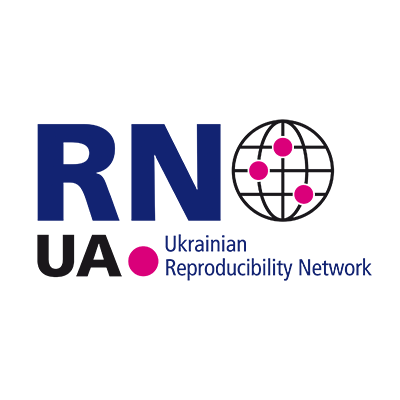Initial Meeting to Establish the Ukrainian Reproducibility Network
Initial Meeting to Establish the Ukrainian Reproducibility Network
Initial Meeting to Establish the Ukrainian Reproducibility Network
When? November 21-23, 2024 during the Ukrainian Open Science Forum
Where? Lviv Polytechnic National University (Lviv, Ukraine)
Who is invited? Ukrainian researchers and educators interested in joining UARN
What is a reproducibility network?
A national reproducibility network is a countrywide peer-led consortium that aims to improve research practices by promoting, supporting, and investigating factors contributing to robust research including, but not limited to, reproducibility, replicability, and Open Science. Activities may include promoting training activities, disseminating best practices, supporting research on reproducible research practices, and advocating for reproducible and open research.
A reproducibility network typically serves as a hub to connect researchers and scientists to exchange ideas and good practices, promoting collaboration among scientists from a range of scientific disciplines. These networks provide infrastructure, facilitate opportunities for researchers and initiatives to support and amplify each other’s efforts, and foster community building and shared problem-solving.
Why Ukraine needs one?
A strong research culture and practice is a prerequisite for effective post-war recovery and the long-term success of Ukraine through boosting the knowledge economy. Collective recommendations of the 2022 Conference on the Ukraine Crisis explicitly urged the international community to empower conflict-affected academia by fully adopting the UNESCO recommendation on Open Science. Unfortunately, reproducibility and open/FAIR data currently are the two weakest points in the Ukrainian Open Science landscape. Thus, putting a focus on them is highly relevant.
The goals of the Reproducibility Network would be to become a center for sharing best practices of reproducibility as the means of trust and excellence in research, a platform for discussions on the matter, and a group actively informing policy at the National level. As reproducibility is part of the “science done right” as we understand it, research managers and funders need to incentivise it on different levels. Hence, the Reproducibility Network will hopefully play an important role in reforming research assessment in Ukraine led by the CoARA National Chapter.
For Ukraine, establishing a Reproducibility Network is also an important EU integration step and the opportunity to join the vibrant global group of similar networks. So, welcome to UARN – Ukrainian Reproducibility Network!
How to join?
Within the Ukrainian Reproducibility Network (UARN), we plan to establish a network of Local Networks (Nodes) in different parts of Ukraine. If you are a researcher, educator, or a PhD student at a higher education institution, research facility, or other research-performing organisation, and share our interest in open and reproducible research, you are very welcome to respond to the current open call to join UARN and kick-start a UARN Node in your home city or academic community.
We expect you to:
- create an account at the Peers.International platform;
- submit your application through the platform including a short 500-1000 word essay on how to ensure or boost reproducibility in your particular field of research and why it is important;
- be available to join us during the Ukrainian Open Science Forum in Lviv while respecting the war-time related security requirements;
- be an active participant in the Ukrainian Open Science Forum, participate in discussions and information exchange activities;
- promote open and reproducible research in your local community by establishing a local UARN node soon after the event.
What we offer:
- participation in a National-level community of like-minded scholars aiming to improve Ukrainian research making it an asset for the country's development;
- participation in Ukrainian Open Science Forum bringing together key experts in open and reproducible research from various fields and countries;
- covered travel expenses within Ukraine (train or bus), shared accommodation in Lviv for 2 nights (2 people per hotel room), and a social program.
All applications will be peer-reviewed. During the selection process, priority will be given to applicants representing diverse regions, research fields, and institutions. Organisers will also strive to ensure gender equality and inclusiveness.
The Ukrainian Reproducibility Network received seed money through the ‘TIER2 Award for Establishing a Reproducibility Network’. The TIER2 project is funded by the European Union’s Horizon Europe research and innovation programme under grant agreement No 101094817.
Views and opinions expressed are those of the author(s) only and do not necessarily reflect those of the European Union or the European Research Executive Agency (REA). Neither the EU nor REA can be held responsible for them.
